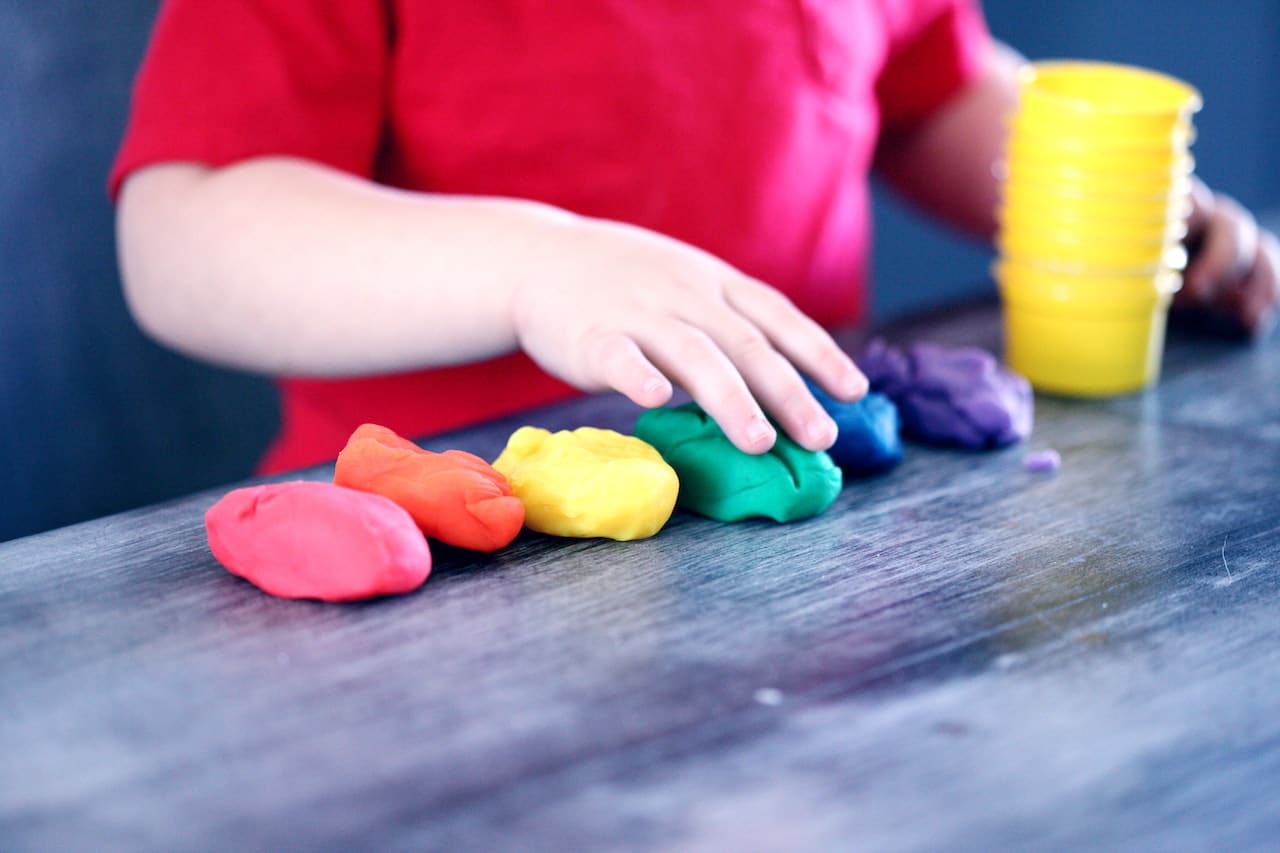Play dough, often seen as a basic playtime material, is actually a powerful tool in the realm of early childhood development. Its malleable nature and sensory-rich texture provide a unique experience that caters to various aspects of a child’s growth. From fostering creativity to enhancing fine motor skills, the benefits of play dough in early childhood extend far beyond its colourful and fun appearance.
History of Play Dough
The history of play dough, which we now associate with childhood creativity and learning, has a surprising origin story. In the 1930s, it was first created not for play but as a practical solution for cleaning wallpaper. However, educators and childcare professionals, observing its safe and pliable properties, quickly realised the benefits of playing with play dough. They recognised how this malleable substance could ignite the imaginations of young minds, offering an ideal tool for creative expression and sensory exploration.
Fine Motor Skill Development
When discussing the benefits of play dough for preschoolers, it’s impossible not to mention its role in helping children develop fine motor skills. As they pinch, roll and sculpt the play dough, children naturally strengthen the muscles in their fingers, hands and wrists. This strengthening through construction play is critical, as it lays the foundation for a range of essential daily tasks. From gripping a pencil and handling scissors to engaging in self-care activities like buttoning and zipping, the dexterity and coordination fostered by play dough activities are invaluable.
Enhancing Hand-Eye Coordination
As children mould and shape the dough, they are not just creating forms and figures; they are engaging in a complex process of visual and tactile coordination. This process involves using their sight to precisely guide their hand movements, a fundamental skill that is crucial in various aspects of their development and daily life, such as writing, using utensils, catching and throwing.
Fostering Creativity and Imagination
One of the most well-known benefits of play dough for toddlers and children is its ability to foster creativity and imagination. Children can create anything they envision, from simple shapes to complex landscapes, encouraging them to think outside the box. This kind of free-form, unstructured play is a great way to nurture not just creative expression, but also critical thinking and problem-solving skills.
Emotional Regulation and Stress Relief
Play dough offers more than just creative fun; it serves as a therapeutic tool that helps in emotional regulation and stress relief for children. The act of manipulating the soft, pliable dough is soothing, providing a tactile experience that can have a calming effect on the mind and body. It offers them a physical outlet to channel their feelings, helping in processing and expressing emotions in a healthy and constructive way.
Improving Social Skills
Play dough sessions often become social experiences, providing an excellent platform for the development of essential social skills in children. As they gather around a shared play space, children naturally learn the values of sharing and cooperation. They are encouraged to exchange play dough, tools and ideas. This interaction is crucial for young children as they navigate the basics of social etiquette, like taking turns, negotiating with peers and respecting others’ creations.
Promoting Extended Attention Span and Scientific Concepts
Play dough is not only a tool for creative expression but also a powerful medium for enhancing a child’s attention span and introducing fundamental scientific concepts. When children engage with play dough, they become absorbed in the task of shaping and manipulating the material, which requires a sustained focus and concentration. Engaging in these immersive experiences helps children develop the ability to attend to a task for extended periods.
Beyond its role in attention development, play dough also acts as an introductory tool to basic scientific principles. Through play, children experience firsthand concepts such as cause and effect and the transformation of materials. For instance, when they press or mould the dough, they see the immediate effect of their actions on its shape. This tangible experience helps them understand how their actions can influence and change objects around them.
Boosting Literacy and Numeracy Skills
By incorporating letters and numbers into play dough activities, children can engage in a tactile and interactive form of learning. Making learning hands-on through play dough is not only enjoyable but also reinforces their understanding of basic literacy and numeracy concepts in a way that can be more impactful than traditional methods.
When children use play dough to form letters and numbers, they are doing more than just shaping the dough; they are building a physical and visual connection with these symbols. This process aids in enhancing letter and number recognition, an essential step in the journey towards literacy and numeracy proficiency.
Sculpt their learning journey with Aurrum Kids
Play dough is so much more than just a plaything; it’s a multifaceted educational tool that supports various aspects of childhood development. Through the simple act of shaping and moulding, the benefits of play dough allow children to engage in a world of tactile exploration and imaginative creation.
